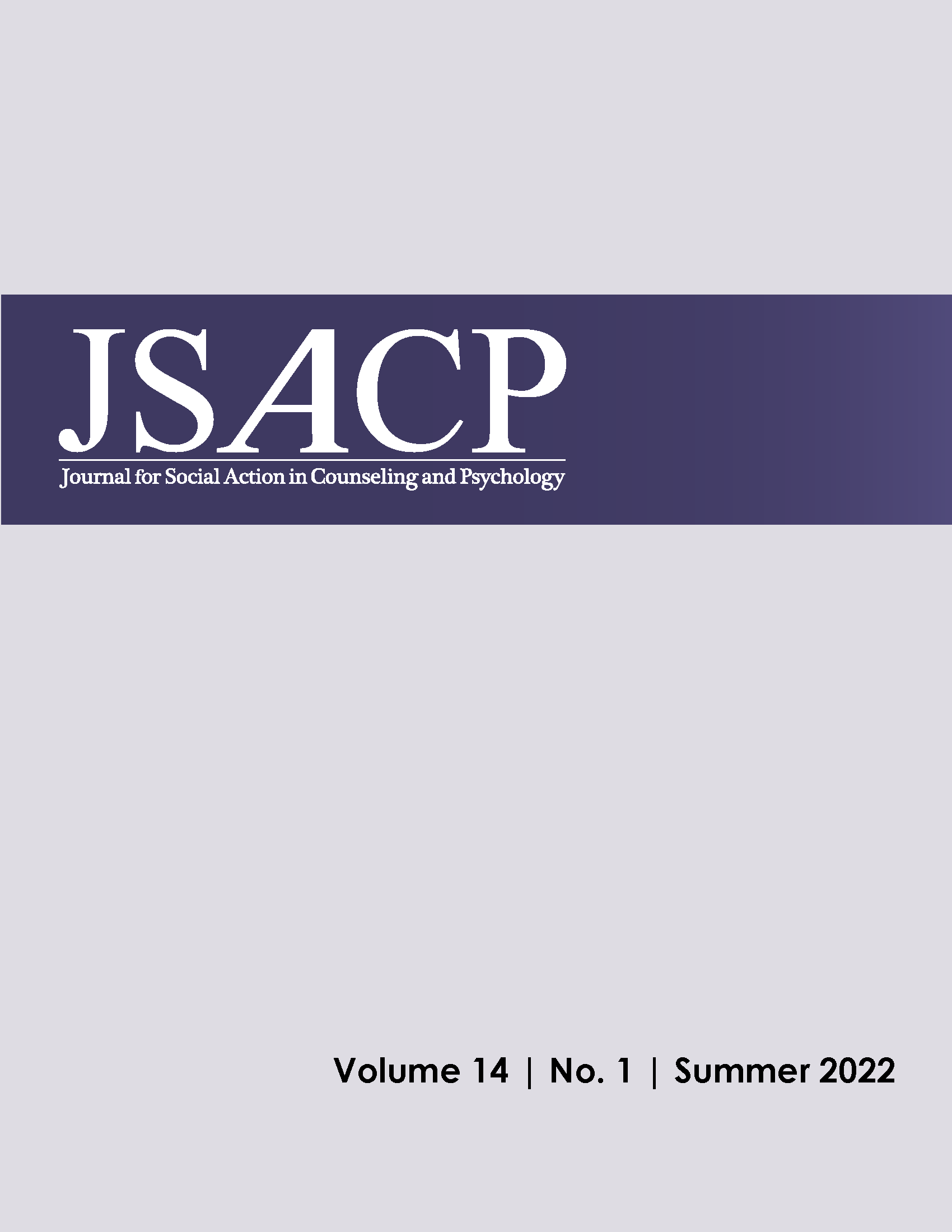Using a Consultation Assignment to Enhance Trainees’ Understanding and Implementation of Consultation and Social Justice in Career Counseling
DOI:
https://doi.org/10.33043/JSACP.14.1.106-123Keywords:
social justice, advocacy, consultation, career counseling, student developmentAbstract
Social justice advocacy and career counseling are foundational competencies for counseling professionals. However, training in advocacy and consultation outside of the classroom (i.e., in the community) is infrequent and career counseling courses, despite conceptualizing systemic issues, often focus on individual-level interventions. There is an opportunity to merge these competencies into a single experience for graduate trainees. Graduate students in a clinical psychology master’s program completed a pilot, semester-long assignment in their career counseling class, which required them to work as consultants to organizations on a social justice oriented, career counseling focused project. We used a multi-method qualitative approach to analyze students’ career theory knowledge and application and social justice advocacy. Data were generated through students’ written assignments. Using coding reliability thematic analysis, data indicated most students were able to describe consultant and individual difficulties from an advocate and social justice framework, but about half the students struggled to integrate these social justice frames into career counseling theories and interventions. Five themes relating to student development emerged (e.g., recognizing privilege, self-efficacy), alongside three themes related to the logistics of the assignment design and implementation. Results are discussed alongside how to improve the assignment.
Downloads
Downloads
Published
How to Cite
Issue
Section
License
Copyright (c) 2022 Stephanie Winkeljohn Black, Zainab Akef, Centia Thomas

This work is licensed under a Creative Commons Attribution-NonCommercial-NoDerivatives 4.0 International License.
By submitting to JSACP, the author(s) agree to the terms of the Author Agreement. Beginning in 2018, all authors retain copyrights associated with their article contributions and agree to make such contributions available under a Creative Commons Attribution-NonCommercial-NoDerivatives 4.0 International license upon publication in JSACP. Copyrights to articles published prior to 2018 have been transferred from the authors to JSACP.









